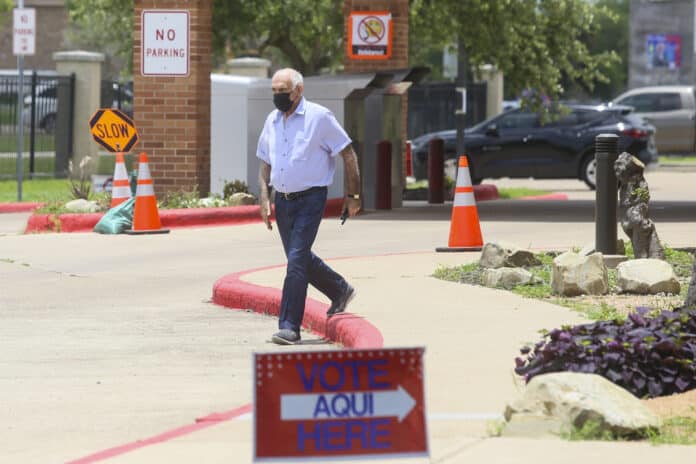
|
Only have a minute? Listen instead
Getting your Trinity Audio player ready...
|
The Brownsville City Commission recently approved two ordinances aimed at asserting some control over how elections go down in the city.
One amends Chapter 40, “Elections,” in the Code of Ordinances regarding electioneering at the two voting sites controlled by the city: the main and Southmost branches of the Brownsville Public Library. The ordinance is in response to complaints about the “level of electioneering activities at the City’s public libraries” from members of the public, library staff and county election officials, according to the commission’s Aug. 6 agenda.
Texas Election Code Sections 61.003 and 85.036, meanwhile, “require an entity that controls or owns a public building used as a polling location to allow electioneering on the premises subject to reasonable regulations on time, place, and manner.”
Mayor John Cowen Jr. said it’s the first time such an ordinance has been enacted in the city, and that it’s about setting up reasonable guardrails.
“All of us on the commission have experienced how out of control it can feel sometimes,” he said. “I think it’s in the public’s best interests.”
The ordinance in part addresses the “sheer volume of election campaign signs,” Cowen said. It also prohibits interference with disability access or emergency response services at the library polling sites, and prohibits the use of trailers and vehicles to display electioneering materials as well as barbecue pits and food trucks.
“Electioneering representatives are barred from approaching vehicles while voters are in the process of voting,” reads the ordinance. “The distribution of food or beverages to voters or patrons on city-owned or controlled property is also prohibited. Additionally, the use of loudspeakers, microphones, megaphones, and other amplified devices is restricted within 1,000 feet of polling places.”
“Regulating private property is a much harder thing to do, but at least we can control the two election sites that the city has,” Cowen said.
The other ordinance approved by the city commission involves adoption of a Campaign Finance Code. Again, it’s something new for Brownsville in that it sets limits on how much money candidates can spend during their campaigns, and how much individual supporters can contribute to candidates.
“As Brownsville is becoming a much more desirable place to invest and to operate, we all see the potential risk there is for campaign contributions to get out of control, because right now there’s no limit for campaign contributions, and no transparency in reporting campaign finances of candidates,” Cowen said. “You file a report and it’s on the honor system. You don’t have to provide any back-up (information).”
The mayor said he wanted to create such a reporting requirement, which will mandate that candidates provide copies of checks and invoices to accompany campaign finance reports. Under the new ordinance, candidates for district city races can’t spend more than $50,000 per campaign, plus an additional $10,000 if a race goes to a runoff.
In citywide races — the commission’s two at-large seats and the mayor’s seat — candidates are allowed to spend no more than $100,000 ($25,000 more in a runoff). The Campaign Finance Code also addresses situations where a candidate might pays 100% of campaign expenditures out of his or her own pocket, but then accepts contributions after winning office.
“That can come a lot from vendors,” Cowen said. “That’s a way to limit the undue influence that special interests can potentially have, people who want to do business with the city or are in a procurement process. This happens at every governmental level where there’s procurement, people that want to do business with the city.”
He likened it to an “arms race.” With the new ordinance, individuals are limited to $1,000 in contributions to a candidate per election cycle. Businesses and political action committees are capped at $2,500. Cowen said he doesn’t believe these caps are overly restrictive.
Cowen said he “felt time was of the essence to get these done,” noting that campaigning for next year’s May 4 General Election has already begun — earlier than usual.
“These two measures go a long way in keeping our elections protected in … keeping undue influence out of the commission and also making it more attainable for people to run in general, so if you’re a candidate you’re not running against someone with unlimited resources. … I think it sends a strong message that this commission is not for sale. I think that’s an important message to the community.”



